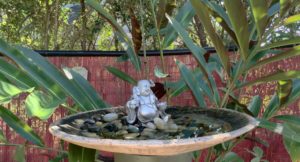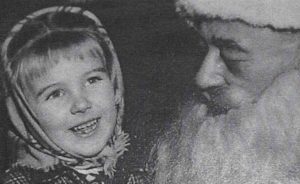Reconceptualizing Karl
Remorse fills me as I experience the power of Karl’s forgiveness. Here is a beautiful person, and I did not fully “see” him” when he was alive. I feel ashamed of my ignorant and thoughtless behavior. Those insights lead to another long conversation between us about forgiveness. I beg Karl’s forgiveness for my incompetence and insensitivity following his suicide attempt. I apologize for my criticisms of him for being lazy and disorganized, my harsh and dictatorial attitudes in my business, and for blaming him for things that weren’t his fault.
Karl Is my opportunity for soul growth

After months of intense conversations about forgiveness, I find myself begging Karl to connect even more deeply, as I begin to recognize that communication with Karl is my opportunity for soul growth. I am hungry for that. I bless and honor him, announcing that there is nothing more sacred than a relationship — with anyone and anything — including with God. I commit myself to cherish all my relationships and heal the broken ones.
IT IS NEVER TOO LATE TO FORGIVE
As my broken heart begins to soften and relax, I also learn that it is never too late to forgive. Following his death, as we journey together to face and pass through the Forgiveness Gateway, Karl and I can forgive each other on a much deeper level than was possible for us when he was alive. I thought we were done with forgiveness, but I am wrong.
I learn that forgiveness is always possible.

The strength of forgiveness
During my struggles with forgiveness, a meditation from Jack Kornfield inspires me:
I feel my sorrow and regret — because my fear and confusion caused pain to my Beloved.
I visualize each memory that still burdens my heart.
I ask for your forgiveness, I ask for your forgiveness.
About the time I am reading Kornfield’s book, Karl explains a fundamental truth, reiterated by Kornfield: “there is a strength to forgiveness. When we forgive, we can also say, ‘Never again will I allow these things to happen.’ We may resolve to never again permit such harm to come to ourselves or to another” (Kornfield, J., The Art of Forgiveness, Lovingkindness and Peace, 2002: 40, 29).
In our early conversations, I thank Karl for how much he loves and cares for me. I forgive him for things that upset me, and I apologize for what I did to upset him. I promise to honor the confidence he has placed in me by living a good life in the future. I even celebrate the future I imagine with Karl — as I move into my older years, with him guiding me.
Writing in my journal nurtures an awakening of who Karl really is: a soft, sensitive, spiritual soul — vastly different from my critical assessment of what he wasn’t.
Eyes and heart wide open
Following my initial apologies, Karl makes it clear that it is time to move on to other topics. We have both hurt each other; we have apologized, and we are sincerely making amends. Now he challenges me to be fearless. These revelations shock me into a new consciousness. I thought our past year was all about loss, grief, trauma, and adjusting to a new life. Now the experience of being “confronted by love” is replacing my initial grieving experience of being “washed by love”. Karl reminds me that there is nothing more sacred than a relationship. My job is to cherish the relationships I have and seek to heal my broken ones.
There is a basic innocence about you.

Karl reminds me:
Because there is a basic innocence about you, you can miss valuable cues in the world around you. What I am suggesting is that the only way to be in life is ‘Eyes and Heart Wide Open’. You have eyes, and you will have to use them. So do not look away.
